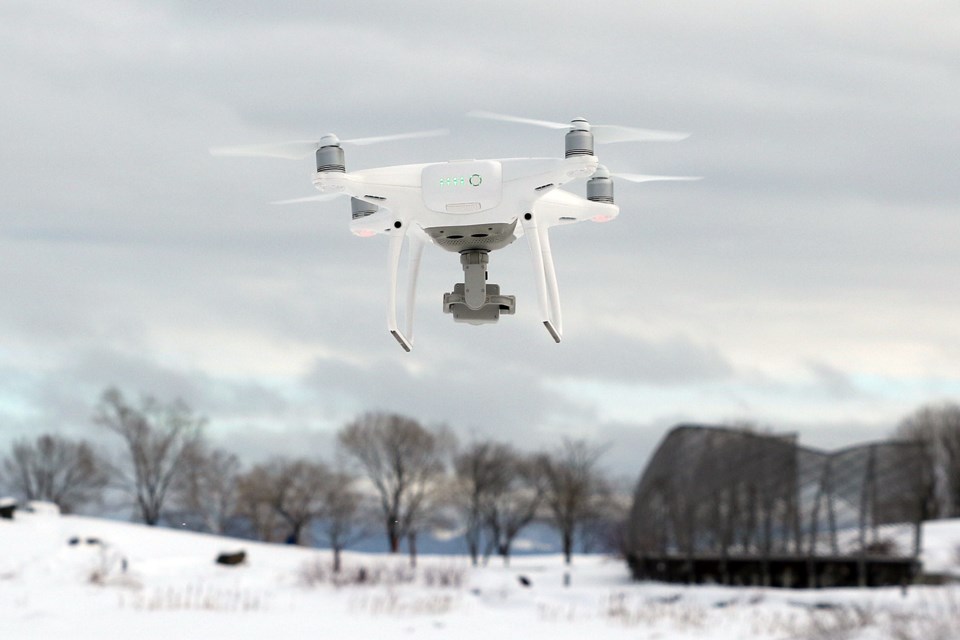THUNDER BAY – A Thunder Bay drone operator says new regulations to fly the machines in Canada will have a significant impact on his business.
He’s also worried the rules, scheduled to come into effect on June 1, will put others out of business and leave thousands of hobbyists not legally allowed to fly their drones.
Alan Auld, owner of Imagine Films and a licensed drone operator, said as things stand, he won’t be able to fly his drone, as it does not meet the standard under the new regulations, introduced last week by Transport Canada.
“It’ll put the aerial portion of my business out of business,” Auld said.
Auld, who follows the current regulations to the letter anytime he flies, says the problem doesn’t lie with like-minded operators.
But because of an explosion of drone sales, there are those who don’t think the rules apply to them.
“There are too many rogue cowboy operators. You can go to your local electronics store and buy one of these for $600 and then you can be up in the air and have no idea of safety. And that’s all (the government) has been trying to do is look at safety.
“But I think the regulations they are putting in for June 1 are a bit lazy on Transport Canada’s part. They’re not looking at the big picture.”
The new regulations state that drones cannot be flown within 5.6 kilometres of airports and 1.9 kilometres of heliports.
Essentially, Auld said, that eliminates just about all of the city of Thunder Bay. Operators must be able to see their drone at all times, must fly it lower than 122 metres in the air, at least 30 metres from bystanders and far away from other aircraft.
Drones must be registered, and only certain models can be granted an exemption to operate within restricted areas under the advanced regulations, that require passing an exam and a flight review test. Under a basic licence, drones can be flown in uncontrolled airspace, must still be registered and the operator must pass the small basic exam.
Auld said it’s too costly to meet the advanced requirements, as hobby-type drones do not qualify.
“I’m a local filmmaker. There are other people who have them for businesses, whether it be for real-estate or for their own surveillance, that they’re not going to be able to use those tools and it’s just going to drive those costs up,” Auld said.
He estimated it will cost a minimum of $30,000 to buy a drone that would be compliant under advanced operating regulations, a price he’s not willing to pay – and one he doubts many users in Thunder Bay will spend as it would be too tough to recoup costs.
Auld is hopeful lobbying efforts, led by manufacturer DJI, will convince Transport Canada to loosen regulations for registered, qualified operators.
